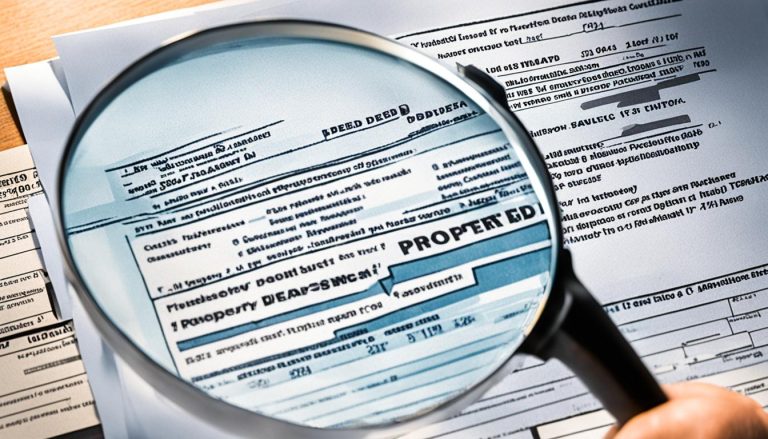Dealing with probate and inheritance can be one of the most challenging aspects of losing a loved one. As a beneficiary, you might feel anxious and uncertain, especially if the executor of the estate is delaying the distribution of funds. Executors hold a lot of power in the process, but with that power comes responsibility.
So, can an executor withhold money from a beneficiary UK? This article will delve into the legalities surrounding executors’ roles, their responsibilities, and when withholding money is justified versus when it may be a sign of mismanagement or a violation of beneficiaries’ rights.
Understanding the Role of an Executor in the UK

An executor is chosen by the person writing the will (the testator) to handle their estate after they pass away. This role comes with a lot of responsibilities and can be quite complex depending on the size and structure of the estate.
What Are the Executor Responsibilities in the UK?
Under UK law, an executor’s primary role is to ensure that the estate is administered according to the will and legal requirements. Their duties include:
- Gathering and valuing assets: Executors must identify all the deceased’s assets, such as property, bank accounts, investments, and personal belongings, and determine their total value.
- Paying debts and taxes: The executor must pay any outstanding debts owed by the deceased, including mortgages, credit cards, and other financial obligations. They are also responsible for ensuring that any inheritance tax is paid before the estate can be distributed.
- Distributing the estate: Once debts and taxes are settled, the executor will distribute the remaining assets to the beneficiaries as outlined in the will.
Throughout this process, the executor must act in the best interest of the estate and the beneficiaries. Executors are bound by fiduciary duties, which means they must manage the estate prudently and impartially, avoiding any personal gain from the process unless explicitly allowed by the will.
Can an Executor Withhold Money From a Beneficiary in the UK?

Yes, an executor can withhold money from a beneficiary in the UK under certain circumstances. The executor’s primary duty is to ensure that the estate is properly administered and that all debts, taxes, and expenses are paid before distributing any inheritance to the beneficiaries. Here are some common reasons an executor might withhold money:
1. Outstanding Debts and Liabilities
If the deceased person had outstanding debts or liabilities, such as taxes, loans, or utility bills, the executor must settle these before distributing the estate. This may delay or reduce the amount a beneficiary receives.
2. Disputed Claims
If there are any disputes, such as claims against the estate from creditors or other potential beneficiaries, the executor may withhold funds until the dispute is resolved. This ensures that all legal obligations are met before the estate is distributed.
3. Tax Issues
Inheritance tax and income tax liabilities must be resolved before the estate can be fully distributed. If there are ongoing tax issues, the executor may need to withhold funds until these are settled with HMRC (Her Majesty’s Revenue and Customs).
4. Challenges to the Will
If the will is contested or there is a legal challenge, such as claims of undue influence or lack of capacity, the executor may hold off on distributing funds until the matter is resolved in court.
5. Provision for Minor Beneficiaries
If a beneficiary is a minor, the executor may need to withhold funds until they reach the age specified in the will or, in some cases, the legal age of 18, unless a trust arrangement is in place for managing the funds.
6. Executor’s Personal Liability
Executors are personally liable for any mistakes made during the administration of the estate. To avoid personal liability, an executor might withhold funds to ensure all obligations, including potential claims or taxes, are fully accounted for.
7. Delays in Probate Process
Sometimes, the probate process itself takes time due to the complexity of the estate, the involvement of foreign assets, or delays in obtaining the necessary legal documentation. In such cases, the executor may withhold distribution until probate is granted.
8. Misconduct by Beneficiary
In rare cases, if the beneficiary has acted in a way that might harm the estate or has breached any conditions outlined in the will, the executor might withhold funds. However, such situations often lead to legal proceedings.
In any case where money is withheld, the executor should communicate clearly with the beneficiaries, explaining the reasons for any delays. Beneficiaries can take legal action if they believe the executor is improperly withholding funds or failing to perform their duties correctly.
Beneficiary Rights: What You Need to Know?
While executors have a wide range of powers, beneficiaries are not without rights. As a beneficiary, you are entitled to:
- Receive your inheritance as specified in the will: The executor must ensure that the estate is distributed according to the will’s instructions.
- Be kept informed about the estate’s progress: Executors have a duty to keep beneficiaries informed, particularly if there are delays in the distribution process.
- Challenge the executor’s decisions: If you believe the executor is not fulfilling their duties or is deliberately withholding funds without valid reasons, you have the right to take legal action.
Understanding your rights can help protect your inheritance and prevent unnecessary delays or disputes.
How Long Can an Executor Withhold Money From a Beneficiary?

An executor can typically withhold money from a beneficiary for as long as it takes to properly administer the estate. In the UK, this process usually lasts between 6 to 12 months, which is often referred to as the executor’s year. During this time, the executor must ensure all debts, taxes, and claims against the estate are resolved before distributing assets.
However, delays can occur due to:
- Complex estates involving property, foreign assets, or business interests.
- Disputes between beneficiaries or creditors.
- Outstanding legal claims against the estate.
If delays extend beyond 12 months, the executor should provide a clear explanation. If an executor is withholding money without valid reasons or causing excessive delays, beneficiaries can seek legal advice or, in extreme cases, take the matter to court to resolve the issue.
Legitimate Reasons an Executor Can Withhold Money
There are several valid reasons why an executor may need to withhold funds temporarily. These reasons usually arise due to legal obligations or complexities within the estate that must be resolved before money can be distributed.
Delayed Probate Process and Estate Complexities
In the UK, probate is the legal process of administering a deceased person’s estate. This process can be lengthy, especially for larger or more complicated estates. Executors may need time to gather all assets, value them accurately, and resolve any outstanding matters related to debts or taxes. If the estate includes properties, businesses, or overseas assets, the executor may require more time to ensure that everything is managed properly.
Reasons for probate delays include:
- Disputes over the validity of the will
- Complicated financial arrangements, such as trusts or investments
- The need for professional valuations of property or other valuable assets
Until probate is complete, the executor cannot distribute the estate, and as a result, beneficiaries may experience delays in receiving their inheritance.
Unresolved Debts and Claims on the Estate
One of the executor’s primary responsibilities is to ensure that all debts owed by the deceased are paid before any assets are distributed to the beneficiaries. This includes paying off personal loans, mortgages, credit cards, and other liabilities, as well as settling any outstanding taxes. If there are debts that have not been settled, the executor may withhold inheritance money to avoid the risk of over-distribution, which could leave the estate insolvent.
Additionally, other claims may arise, such as:
- Claims from creditors: Creditors may come forward to assert claims on the estate, especially if the deceased had outstanding debts or loans.
- Family claims: Sometimes, family members may contest the will, believing they were unfairly left out or under-provided for. These disputes can delay the distribution process while they are resolved through legal channels.
Executors have a duty to resolve these matters before distributing the estate to avoid legal issues later.
Disputes Between Beneficiaries
Unfortunately, family disputes over inheritance are common. Executors are sometimes caught in the middle of disagreements between beneficiaries regarding the distribution of assets, the validity of the will, or the fairness of certain decisions. If a dispute arises, the executor may need to withhold money until the issue is resolved, either through negotiation, mediation, or court proceedings.
In such cases, the executor must remain neutral and act in the best interests of the estate, making sure that no irreversible decisions are made while disputes are ongoing.
Executor Fiduciary Duties and Withholding Funds
Executors have a legal duty to protect the estate from financial risk. This means that in certain situations, they may need to withhold funds temporarily to safeguard the estate’s value. For example, if the estate is facing a legal claim or potential financial liability, the executor may need to reserve funds to cover these costs. Failure to do so could result in financial losses for the estate, which would ultimately reduce the inheritance available to beneficiaries.
When Withholding Becomes Unlawful?

While executors are allowed to withhold money under specific circumstances, there are limits to this power. If an executor withholds money without a valid reason or for an excessive period, their actions could be deemed unlawful.
Signs of Executor Mismanagement
As a beneficiary, you should be aware of certain warning signs that may indicate executor mismanagement or misconduct:
- Lack of communication: If the executor is not providing regular updates or responding to your inquiries, it could be a sign that something is amiss.
- Unexplained delays: While probate can take time, excessive or unexplained delays may suggest that the executor is not fulfilling their duties properly.
- Misuse of estate funds: Executors are required to keep estate funds separate from their own finances. If you suspect that the executor is using estate money for personal expenses, this is a serious breach of their fiduciary duties.
If you encounter any of these signs, it may be necessary to take legal action to protect your inheritance.
Legal Recourse for Beneficiaries
Beneficiaries have the right to challenge the executor’s decisions if they believe the executor is acting unlawfully or not in the best interest of the estate. In such cases, you may:
- Request an inventory of the estate’s assets and debts to understand the financial situation.
- Ask for an account of the executor’s actions to ensure they are acting in line with their legal obligations.
- Seek legal advice if the executor is not cooperating or if you believe they are mismanaging the estate.
In extreme cases, beneficiaries can apply to the court to have the executor removed and replaced if there is clear evidence of misconduct.
Challenging Executor Decisions in UK Courts
Taking legal action against an executor is not a decision to be taken lightly. However, if the executor continues to withhold money without justification, you may need to seek a court’s intervention. Courts in the UK have the authority to:
- Remove executors who are not performing their duties properly.
- Order the distribution of the estate if the executor is unreasonably delaying payments.
- Appoint a new executor if necessary.
Beneficiaries can also sue the executor for damages if they suffer financial losses as a result of the executor’s mismanagement.
Steps Beneficiaries Can Take if Money is Withheld

If you find yourself in a situation where your inheritance is being withheld, it’s important to take proactive steps:
Communication with the Executor
The first step is to communicate directly with the executor. Often, delays are due to legitimate reasons such as unresolved debts or probate complications. Ask the executor for an update on the estate’s progress and the reasons for the delay. This can help clarify the situation and provide you with a realistic timeline for when you can expect to receive your inheritance.
Seeking Legal Advice
If the executor is unresponsive or if you believe the delay is unjustified, it may be time to seek legal advice. A solicitor with expertise in probate law can review the situation and advise you on the best course of action. They can help you understand whether the executor is acting lawfully and what steps you can take to resolve the issue.
Court Involvement: How to Proceed Legally
If the executor refuses to cooperate or you believe they are acting unlawfully, you may need to apply to the court for assistance. Beneficiaries have the right to petition the court for an order that forces the executor to distribute the estate or removes them from their role if they are found to be in breach of their duties.
The court can also order the executor to provide an account of their actions and explain why funds are being withheld.
Common Misunderstandings About Executors Withholding Funds
There are a few common misconceptions about executors’ rights when it comes to withholding money from beneficiaries.
Executor vs. Trustee Responsibilities
It’s important to understand that an executor’s role is different from that of a trustee. Executors manage and distribute the deceased’s estate, while trustees are responsible for managing trusts that may be set up as part of the will. The rules for withholding funds are different for executors and trustees. Executors can only withhold money if it’s necessary to settle debts or resolve disputes, while trustees may have more flexibility in managing ongoing trust funds.
Misinterpretations About the Timeline for Estate Distribution
Many beneficiaries expect the distribution of funds to happen quickly, but the reality is that probate can take time. On average, probate in the UK takes around 6 to 12 months to complete, but it can take longer for larger or more complex estates. Executors are responsible for ensuring that all legal obligations are met before distributing funds, which means that delays are often unavoidable.
Preventing Executor-Beneficiary Disputes in the Future
Executor-beneficiary disputes can be stressful and time-consuming, but they can often be avoided with clear communication and proper planning.
How to Ensure Transparency During the Probate Process?
Transparency is key to preventing disputes. Executors should maintain open lines of communication with beneficiaries, providing regular updates on the probate process and explaining any delays. Beneficiaries, in turn, should ask for updates if they feel left in the dark and seek clarification about any concerns they may have.
Mediation and Alternative Dispute Resolution in Probate Cases
If a dispute arises, mediation can be a helpful tool to resolve conflicts without resorting to costly litigation. Mediation allows both parties to discuss their concerns in a neutral environment and come to a mutually acceptable agreement. This can prevent the situation from escalating to court, saving both time and money.
Conclusion
In the UK, executors play a pivotal role in managing and distributing the estate, ensuring all legal obligations are met before beneficiaries receive their inheritance. While they can withhold funds for legitimate reasons, such as settling debts or resolving disputes, they must act transparently and in the best interest of the estate.
If an executor is delaying payments without proper cause or acting unlawfully, beneficiaries have legal options to challenge their actions. Clear communication and understanding both the executor’s duties and your rights as a beneficiary are key to resolving any issues that may arise during the probate process.
What Are the FAQs About Executors Withholding Money in the UK?
Can an executor legally delay payment to beneficiaries?
Yes, an executor can legally delay payment to beneficiaries if there are valid reasons, such as unresolved debts, legal claims, or disputes. However, they must communicate these reasons to the beneficiaries and ensure that the delay is not excessive.
What happens if an executor fails to act in the beneficiary’s interest?
If the executor is not acting in the best interests of the beneficiaries or the estate, the beneficiaries can take legal action. This may involve requesting a court to remove the executor or suing for any financial losses caused by their misconduct.
How long can an executor hold onto inheritance money?
There is no strict legal deadline for distributing an estate, but executors are expected to complete the process within a reasonable time, usually within 6 to 12 months. If delays go beyond this period without explanation, beneficiaries can ask for an update or take legal steps to enforce distribution.
What can I do if I suspect the executor is acting unlawfully?
If you suspect the executor is acting unlawfully, you should seek legal advice immediately. A solicitor can help you assess the situation and advise on the best steps, which may include taking legal action or applying to the court for the executor’s removal.
Can an executor be removed from their position in the UK?
Yes, an executor can be removed by a court if they are found to be mismanaging the estate or failing to fulfill their duties. Beneficiaries can apply to the court for the executor’s removal if there is clear evidence of misconduct.
Can a beneficiary sue an executor for withholding money?
Beneficiaries can take legal action against an executor if they believe the withholding of money is unjustified. This could result in the court ordering the distribution of funds or awarding damages if the beneficiary has suffered financial losses.
Is there a time limit to make a claim against an executor?
Yes, there is generally a six-month time limit to make a claim against an executor after probate has been granted. However, this can vary depending on the specifics of the case, so it’s important to seek legal advice early if you believe you have grounds for a claim.






